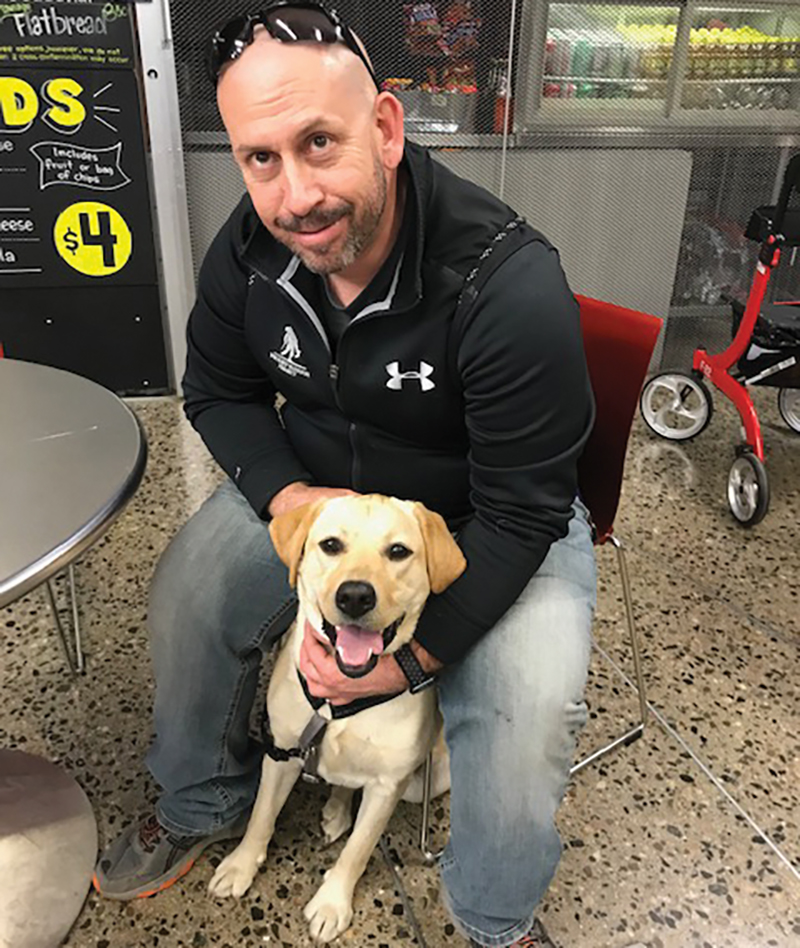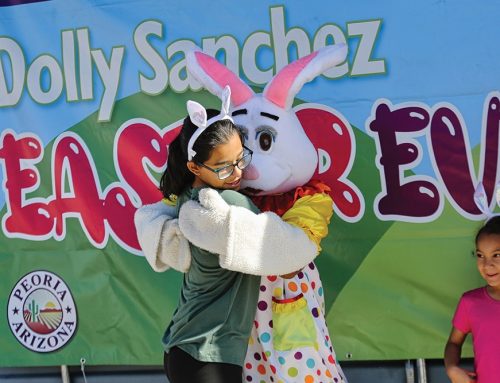Peoria-based Soldier’s Best Friend helps veterans with combat-related PTSD or Traumatic Brain Injury (TBI) by pairing them with a dog that can become their service dog or therapeutic companion dog. Their goal is to help reduce veterans’ PTSD or TBI symptoms. Thanks to the support from the local community, Soldier’s Best Friend is celebrating a decade of service.
Over half of the dogs in the program were homeless dogs adopted in Arizona by the nonprofit and paired with their veteran partner. More than 300 veterans with combat-related PTSD and TBI have gained a new lease on life after receiving a rescue dog and training with Soldier’s Best Friend dog trainers.
“Having a trained service or therapeutic companion dog can be life changing,” says Kae Ares, Interim Executive Director. “The veteran and their canine partner form an incredible bond. Their trained dog helps the veteran cope better with their symptoms and feel more comfortable in public.”
How It Works
Ares explains that, rather than the nonprofit raising and training a puppy, their trainers teach the veteran how to be the dog’s handler. The program takes an average of six to nine months for each team to master required skills. The training program costs about $5,000 per team. Thanks to the generosity of donors, soldiers are able to provide this life-changing program at no cost to eligible veterans.
Symptoms that the trained dogs help with include:
• PTSD: incapacitating anxiety, depression, flashbacks, reclusive behavior, nightmares, an uneasiness in public, and suicidal thoughts.
• TBI can cause mood and behavioral problems, memory loss, physical pain, and communication challenges.
During the training, teams not only learn basic obedience, but are also required to learn skills to navigate common public places such as retail stores, restaurants, grocery stores, public transportation, the mall and airport. They also must master a minimum of three PTSD tasks that help the veteran. Each team is tested for their mastery of all these skills before they graduate the program.
Results of a recent graduate survey show significant impact on the lives of their graduates:
• 97% reported their service/therapeutic companion dog improved their overall quality of life.
• 80% reported a positive impact on their relationships with family and others.
• 72% reported an overall reduction in their need for medications.
• Of the graduates who reported experiencing suicidal thoughts prior to beginning training, 91% reported a reduction in suicidal thoughts.
To learn more, visit soldiersbestfriend.org.





